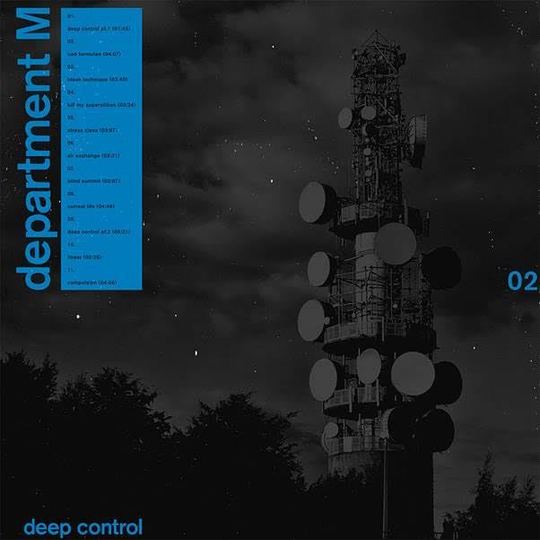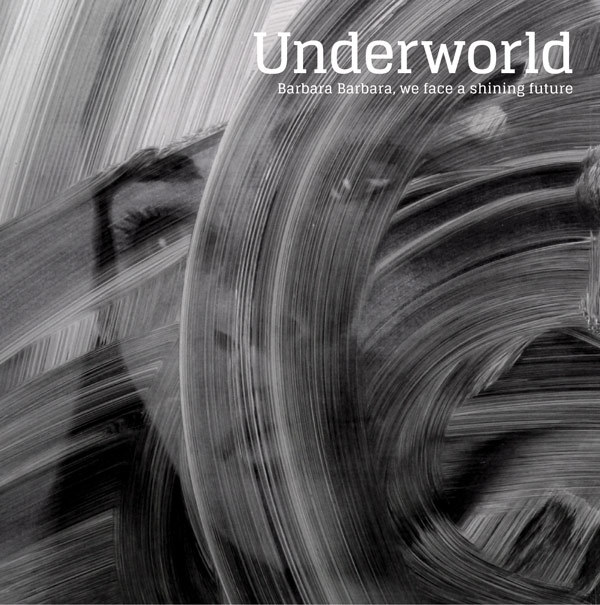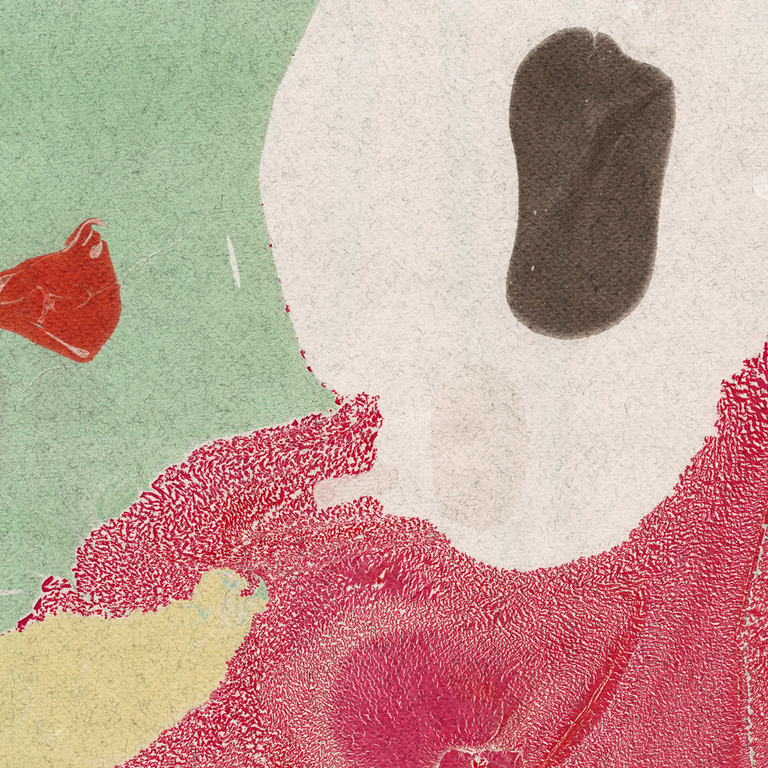“It’s not too late/to fall below/fall under my/my deep control”. Thus goes the mantra-like opening lyric to Department M’s debut full-length Deep Control - the title was plucked from a Patti Smith poem, and serves as a focal point for the album’s central themes. If ‘deep control’ of one’s thoughts and actions is the ultimate aspiration, then finding ways to cope with both the stresses of everyday life and disorders such as anxiety and OCD is of paramount importance.
The album is a very personal work - its principle creator Owen Brinley (he of Grammatics fame) having suffered from bouts of Tinnitus-induced anxiety. Fortunately the creation of Deep Control appears to have been a more pleasurable affair, with Brinley and Department M co-founder Tommy Davidson (of Pulled Apart By Horses) recording in leisurely bursts at producer James Kenosha’s studio in Bridlington. Enigmatic Leeds-based vocalist Snow Fox also provides additional vocals throughout the album.
Deep Control can almost be viewed as a concept album - after ‘Deep Control Pt. 1’ introduces us to the album’s main theme, the next two tracks portray the effects of anxiety. ‘Bad Formulae’s shimmering synth-pop sees Brinley feeling powerless as he watches time slip away from him “For youth, flow away, will float away/Youth, we must replace, must replace.” The track also proves that he still has a way with words - “You could break an hourglass/kneel and scrape up all the sand/and yet still be out of time and of questionable design,” is a rather wonderful metaphor. ‘Bleak Technique’, meanwhile, is all about the anxiety caused by living in a post-Facebook world - “every day they gather proof,” sings Brinley, with a touch of paranoia that’s echoed in the song’s taut bassline.
Having established that living with anxiety is not exactly a good time, the record moves on to coping mechanisms - prescription drugs (‘Kill My Superstition’), therapy (‘Stress Class’) and finally, escapism in the form of a night on the tiles (‘Air Exchange’). Each of these themes is not only reflected in the lyrics, but in the sonic makeup of the songs themselves. ‘Kill My Superstition’ creates tension by contrasting its pleasant yet ominous melody with a low buzz of synth bass, while ‘Stress Class’ mixes Brinley’s haunting voice with warm, comforting synthesiser sounds and bursts of resonant guitar to create an absolutely perfect song. ‘Air Exchange’ sees Snow Fox take the lead, with her siren-song vocals giving the sense that the titular ‘Air Exchange’ is a place of hope and relief, before Brinley chimes in with the earnest, almost despairing request - “help me forget myself/how hard could it be?”
Of course, trying to drink away your problems rarely ends well, and the record’s next three tracks demonstrate the possible results. The instrumental ‘Blind Summit’ shows the best possible outcome - a moment of transcendence and escape from the demons inside one’s head. But it is a fleeting victory - ‘Surreal Life’ depicts the gnawing realisation that the drink is but a temporary release, while ‘Deep Control Pt. 2’ sees alcohol turn from a blessing to a curse. Though the mantra from the album’s opening track returns, it eventually falls by the wayside, replaced by a vicious, atonal squall of guitar - showing that even the record’s most sonically displeasing moments have a narrative purpose.
After the crash come the consequences, and so the last three tracks ruminate on the effect that living with a disorder has on both the sufferer and the people around them. The prickly, tense sonics of ‘Linear’ are paired with lyrics that fear becoming trapped in “a future that leaves me cold/too clinical, bathed in ethanol, so medicinal.” ’Jazz Collapse’ and ‘Compulsion’, on the other hand, both recount a struggle to maintain personal relationships - the former in a heady rush of swirling synths and scattered percussion, the latter with a bleak sense of resignation matched by its muted tones.
On first listen Deep Control may just appear to be an album of beautifully-voiced synth-pop - but it’s absolutely the kind of record that can only benefit from the listener trying to interpret and understand the meaning behind its songs. Your mileage may vary, of course, though I’d recommend that if you came for the synthesisers, you should stick around for the lyrics - they’re an insightful depiction of what it’s like to live with anxiety.
-
8Paul Faller's Score






















